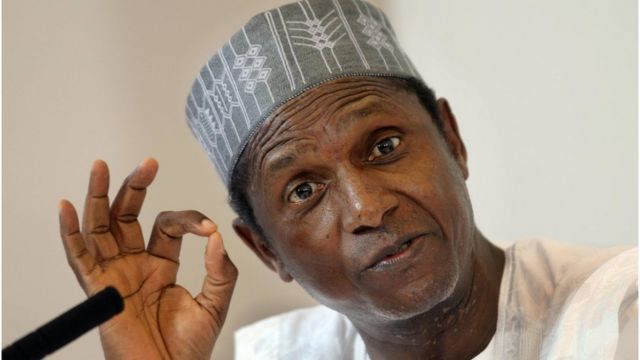The role of a president in shaping the course of a nation cannot be overstated. Throughout Africa, the sudden passing of African presidents has often left a profound impact on the political landscape and the collective psyche of the nation. These events not only mark the end of an era but also challenge the country to navigate the complexities of transition while honoring the legacy of its leader.
From Namibia in the south to Guinea-Bissau in the west, the African continent has seen its share of leaders whose terms were cut short by death and, thus, faced the daunting task of mourning their leader while ensuring the stability and continuity of governance.
Let’s take a look at some African presidents who passed away through their policies, leadership styles, and visions for their countries, leaving indelible marks that influence generations.
Hage Geingob – Namibia (2024)
President Hage Geingob’s death at the age of 82 marked the end of a significant chapter in Namibia’s history. As the third president since the country’s independence, Geingob was instrumental in promoting democracy, economic development, and inclusivity. Under his leadership, Namibia navigated the challenges of modernization and globalization, aiming for stability and growth.
John Magufuli – Tanzania (2021)
Known for his rigorous approach to governance and anti-corruption measures, John Magufuli’s presidency was a mix of commendable efficiency and contentious policies. His unexpected death from heart complications left Tanzania contemplating his complex legacy.
Pierre Nkurunziza – Burundi (2020)
Pierre Nkurunziza’s presidency ended abruptly with his death amidst the COVID-19 pandemic, following a controversial third term that sparked protests and violence. His tenure highlighted the tensions between leadership aspirations and public dissent.
Michael Sata – Zambia (2014)
Michael Sata, affectionately known as “King Cobra,” passed away while seeking medical treatment abroad. His presidency focused on infrastructure and improving the livelihoods of Zambians, earning him widespread respect.
John Atta Mills – Ghana (2012)
Ghana mourned the loss of John Atta Mills, who died months before seeking reelection. His presidency was marked by economic growth and democratic advancements, leaving a legacy of progress.
Umaru Musa Yar’Adua – Nigeria (2010)
The death of Umaru Musa Yar’Adua, following a prolonged illness, led to a constitutional crisis in Nigeria. His efforts to address corruption and the Niger Delta conflict were significant aspects of his presidency.
Levy Mwanawasa – Zambia (2008)
Levy Mwanawasa’s presidency, which ended with a stroke, was notable for its focus on anti-corruption and economic development, demonstrating a commitment to national progress despite health issues.
Lansana Conté – Guinea (2008)
After decades in power, Lansana Conté’s death followed a long illness. His rule was characterized by authoritarian governance amid economic challenges.
Gnassingbé Eyadéma – Togo (2005)
Gnassingbé Eyadéma’s death during an emergency medical evacuation marked the end of Africa’s longest-serving ruler’s tenure, leading to a political crisis and the succession by his son.
John Garang – Sudan (2005)
A pivotal figure in Sudanese history, John Garang’s death in a helicopter crash came weeks after he is appointed First Vice President, aimed at guiding Sudan towards peace.
João Bernardo Vieira – Guinea-Bissau (2009)
The assassination of João Bernardo Vieira occurred amid political instability, reflecting the nation’s struggle with governance and conflict.
